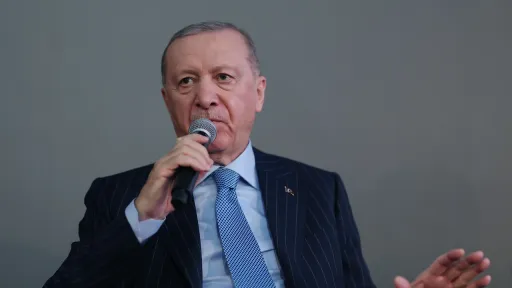By Pauline Odhiambo
Pauline Bakashaza was born nearly two years after the end of the darkest chapter in her native country's history – the Rwandan genocide that claimed almost a million lives in about 100 days in 1994.
Like most of Rwanda's post-genocide generation, history was her window to the genocide perpetrated by armed Hutu militias on the ethnic minority Tutsi tribe and moderates among the Hutu and Twa communities.
The personal accounts of her parents and grandparents, who saw and survived the violence, illustrated what she read in textbooks.
But Pauline's worldview isn't defined by the massacre. Instead, the impact of what happened after that has shaped her thinking.
"There are people born after 1994 whose relatives are still in jail because they participated in the genocide, and then there are others like us whose family members were victims of the genocide or participated in the liberation of the country," the 27-year-old tells TRT Afrika.
"Thankfully, the post-genocide leadership in Rwanda has worked to unite both sides in the interest of a better future for all Rwandans."
Pauline is among the nine million Rwandans registered to vote in the July 15 general election that will decide whether President Paul Kagame, a key player in the armed movement that ended the genocide, gets a fourth term in office.
"Many Rwandans believe President Kagame is the only person who can ensure stability," Eric Ndushabandi, a professor of political science at the University of Rwanda, tells TRT Afrika.
Some wonder what a future without the 66-year-old at the helm would mean for Rwanda.
Given that many politicians of Kagame's generation could be retiring in the coming years, many people have started bracing for a change of baton from the liberators' group to an emerging crop of leaders, says Ndushabandi.
Although President Kagame has been successful in instilling a sense of order in Rwanda's politics following the genocide, there is a flip side to it.
Ndushabandi believes the established order "hasn't allowed anyone to grow up and show up as a leader".
Level playing field
Eight candidates had applied to run against Kagame in this election, but only two were retained in the final list validated by the electoral commission.
The rest, including Kagame's more vocal critics, were invalidated for various reasons that include prior criminal convictions.
Frank Habineza of the Democratic Green Party of Rwanda and Philippe Mpayimana, the duo standing between Kagame and a fourth term, contested the 2017 polls, which the President won with a 99% landslide.
Some Rwandans see Habineza as a capable politician who has shown promise in developing structured programmes that offer alternative solutions to Rwanda's challenges.
"Mpayimana may have similar principles, but his plans for delivery aren't as sharp," says Ndushabandi.
He points out that what Rwandan voters want, regardless of their affiliations, is a political climate that won't revive the horrors of the genocide.
Pauline concurs with the idea of opportunities for every politician or party that puts Rwanda at the heart of the agenda.
"All qualified candidates have the right to seek an electoral mandate to do what they think is best for the country," she says.
"Our current government and senior citizens have worked hard to ensure that we don't have another genocide. Although it's been three decades since, the unfortunate reality is that some people still have a different mindset," she adds.
Raft of allegations
Kagame's government has been accused by Western nations and rights activists of muzzling the media, harassing opponents, and backing rebel groups in neighbouring Congo, to which many of the perpetrators of the genocide are suspected to have fled.
International scrutiny was intensified by the migration deal Rwanda struck in 2022 to receive thousands of asylum seekers from the UK. The deal is now in limbo following the recent change of government in Britain.
According to the refugee agency UNHCR, Rwanda currently hosts at least 127,000 refugees from various African nations, including the Democratic Republic of Congo (DRC).
During the Rwandan genocide, some Hutus moved to Congo and Burundi. Many of them have been denied the chance to return to Rwanda on suspicion that they could stir up civil unrest.
"Rwanda's next President will have to make sure that domestic security and stability stay at the forefront of their policies," says political scientist Ismael Buchana.
Rebuilding process
President Kagame has earned praise during his 24-year tenure for rebuilding this East African country of 14 million and creating the environment for it to become a regional financial hub.
According to the World Bank, Rwanda's economy has remained resilient and adaptable despite challenging external and domestic factors, achieving a 7.6% growth rate in the first three quarters of 2023.
The country’s economy has grown at an average of 8.5% per year since 2000, and the poverty rate has fallen from 57% in 2000 to 39% in 2019.
These statistics look encouraging to Pauline and many of those who believe that the country's leadership has played a stellar role in uniting Rwandans and mobilising them towards a common goal.
Pauline's grandparents were among the 300,000 Tutsi who fled to neighbouring countries to escape the Hutu purge orchestrated by Belgian colonial authorities during the 1959 Rwandan Revolution.
Those who fled settled in four neighbouring countries: Burundi, Uganda, Tanzania, and Zaire (now the DRC). Many remained in exile for nearly three decades.
For Pauline's generation, nothing is more critical than for the post-genocide healing to continue.
"Although we are decades past the violence, there are policies in place to teach the new generation the importance of voting and rejecting conflict," she tells TRT Afrika.
➤Click here to follow our WhatsApp channel for more stories.
























